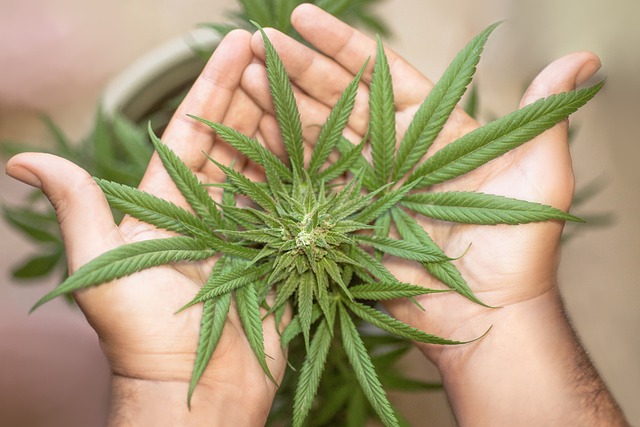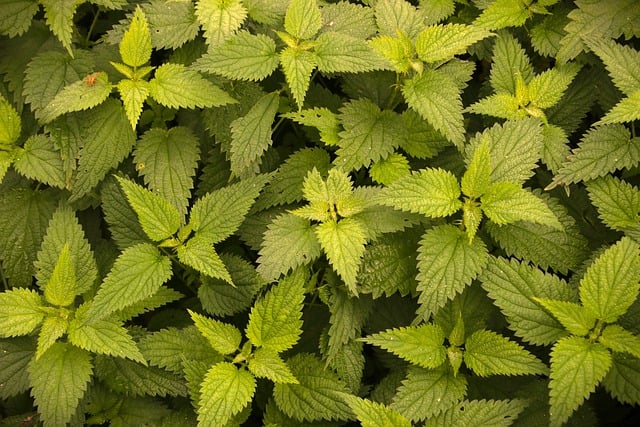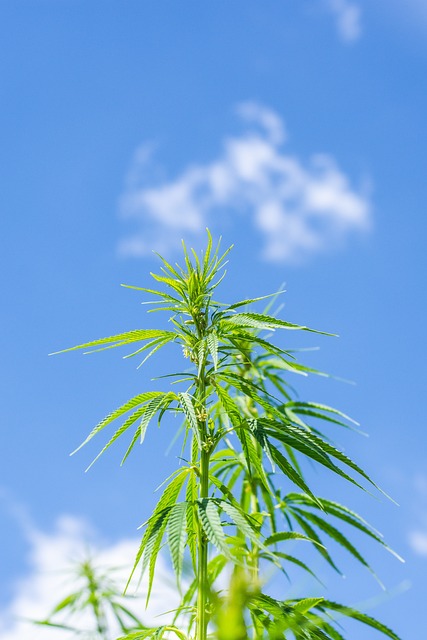Cannabidiolic acid (CBDa) and tetrahydrocannabinolic acid (THCa), key compounds in the Cannabis sativa plant, are gaining attention for their potential health benefits. THCa, notably found in fresh cannabis flowers and non-psychoactive, can be converted into THC after decarboxylation. In the U.S., particularly in Arkansas, THCa's legal status is defined by state regulations, where it is legally accessible under the Arkansas Medical Marijuana Act for patients with qualifying conditions, who must be enrolled in the state's medical marijuana program and possess a cannabis card. This allows for up to 2.5 ounces of THCa flower possession. Arkansas's legislative framework for THCa facilitates scientific research into its therapeutic properties, such as anti-inflammatory, anti-nausea, and analgesic effects, making it an alternative to THC for those seeking medical benefits without the psychoactive effects. The state's cultivation facilities are regulated under the Arkansas Medical Marijuana Cultivation Facilities Act, ensuring high-quality THCa flower through adherence to environmental and regulatory standards. This makes THCa a notable legal option within the health and wellness market in Arkansas, with a growing body of scientific research supporting its potential benefits.
Discover the transformative world of cannabinoids with our deep dive into THCA flower, a precursor to the well-known THC. As the conversation around cannabis continues to evolve, particularly within the regulatory framework of Arkansas, this article illuminates the multifaceted aspects of THCA, from its legal status and cultivation to its potential health benefits and economic impact. Join us as we explore the science behind THCA, the nuances of its interaction with other cannabinoids, and the best practices for consumption. Whether you’re a seasoned user or new to the cannabis conversation, this comprehensive guide offers insights into the burgeoning THCA market in Arkansas, providing a clear lens on the opportunities and challenges that lie ahead.
- THCA Flower: Unveiling the Potential of THC's Precursor
- The Legal Landscape of THCA in Arkansas: What You Need to Know
- The Chemistry Behind THCA: A Closer Look at Tetrahydrocannabinolic Acid
- Harvesting and Cultivation: Growing High-Quality THCA Flower in Arkansas
THCA Flower: Unveiling the Potential of THC's Precursor

Cannabidiolic acid (CBDa) and tetrahydrocannabinolic acid (THCa) are two prominent cannabinoids found in the Cannabis sativa plant. Among these, THCa has garnered attention for its potential wellness benefits, which can be realized when it is properly decarboxylated to become THC. THCa is the precursor to THC and is present in raw or fresh cannabis flowers. When heated, THCa converts into THC, unlocking the psychoactive effects commonly associated with cannabis. The legal landscape regarding cannabis and its derivatives, such as THCa, varies across different states within the United States. In Arkansas, for instance, THCa flower is considered a legal product under specific conditions. According to the Arkansas Medical Marijuana Act, patients with a qualifying medical condition can possess up to 2.5 ounces of THCa flower if they have registered with the state’s medical marijuana program and obtained a cannabis card. This legislative framework allows for research and exploration into the therapeutic properties of THCa, making Arkansas a region ripe for scientific inquiry into this non-psychoactive cannabinoid’s potential.
The interest in THCa as a legal alternative to THC in states like Arkansas stems from its proposed health benefits without the psychoactive effects. Advocates claim that THCa may provide relief similar to THC but without the ‘high’, making it appealing for those seeking medicinal benefits during the day or for those who are sensitive to psychoactive experiences. Studies suggest that THCa could offer a range of therapeutic properties, including anti-inflammatory, anti-nausea, and analgesic effects. As such, the exploration of THCa’s potential in the context of legal cannabis products is an area of growing interest for both medical professionals and consumers in states where it is permitted, like Arkansas. The legal status of THCa flower in this state, coupled with its promising therapeutic profile, makes it a subject of keen interest in the evolving field of cannabinoid research.
The Legal Landscape of THCA in Arkansas: What You Need to Know

In the realm of cannabis derivatives, THCA, or Tetrahydrocannabinolic Acid, has garnered attention for its potential wellness benefits and distinct effects. As of recent updates in Arkansas’s legal landscape, the status of THCA is subject to specific regulations. It’s crucial for consumers and enthusiasts to be aware that while cannabis with a higher THC content, including THCA, is legal under Arkansas’s medical marijuana program, there are strict guidelines governing its cultivation, possession, and use. The Arkansas Medical Marijuana Act provides a framework for the production, processing, and sale of medical marijuana, including its various forms like THCA flower. Patients registered with the state’s Medical Marijuana Program have legal access to THCA products, but it’s imperative to adhere to the program’s rules and the dispensary’s compliance with state laws. Understanding the nuances of THCA legality in Arkansas involves staying updated on state legislation, as the legal environment can evolve, potentially affecting access and regulations surrounding the compound.
Navigating the legal landscape of THCA in Arkansas requires a clear grasp of both state and federal laws. On the federal level, THCA is technically legal under the 2018 Farm Bill, which differentiates between hemp-derived products containing less than 0.3% THC and cannabis with higher THC concentrations. However, in Arkansas, THCA is specifically allowed as part of the state’s medical marijuana program. This distinction is vital for those interested in THCA’s potential benefits to ensure they are within the bounds of the law. As such, anyone interested in THCA flowers or products must prioritize staying informed about any legislative changes and comply with all applicable laws to avoid legal repercussions.
The Chemistry Behind THCA: A Closer Look at Tetrahydrocannabinolic Acid

delta-9-tetrahydrocannabinolic acid (THCA) is the non-psychoactive precursor to the well-known cannabinoid THC, found in the Cannabis sativa plant. It’s the compound present in raw cannabis flowers and begins to convert into THC as the flower is exposed to heat during the decarboxylation process, typically when smoked or vaporized. THCA’s potential benefits are widely discussed within scientific communities, with studies suggesting it may offer anti-inflammatory, anti-nausea, anti-emetic, and neuroprotectant properties. Its chemistry involves a carboxyl group (-COOH) attached to the cyclohexene ring, which differentiates it from its psychoactive counterpart, THC. This chemical structure may contribute to its therapeutic potential, making it an object of interest for researchers and consumers alike.
In the context of legal considerations, THCA itself is not explicitly listed as a controlled substance under federal law in the United States; however, the legality of cannabis products, including those containing THCA, varies by state. As of the knowledge cutoff date, THCA is legal in Arkansas under the Arkansas Medical Marijuana Act for patients with qualifying medical conditions. This legislative framework allows for the exploration and use of THCA within the confines of the law, providing an avenue for scientific research and consumer access to products that may harness its therapeutic properties without the psychoactive effects associated with THC. Understanding the chemistry behind THCA is crucial for both medicinal and recreational users, as it informs the potential benefits and proper handling of cannabis products in a legal context like Arkansas.
Harvesting and Cultivation: Growing High-Quality THCA Flower in Arkansas

Growing high-quality THCA flower is a specialized endeavor that requires careful attention to both the environmental conditions and regulatory framework in place. In Arkansas, where THCA is legal under certain conditions, cultivators must navigate state laws to ensure compliance. The optimal growing conditions for THCA flowers include a controlled environment with precise temperature and humidity levels, as well as ample sunlight or artificial lighting to support photosynthesis. Soil quality plays a crucial role too; it should be rich in organic matter to promote robust growth.
The cultivation process in Arkansas involves selecting the right strain of cannabis that is conducive to producing high levels of THCA, the non-psychoactive precursor to THC. Farmers must also adhere to the state’s agricultural guidelines and obtain the necessary licenses as per the Arkansas Medical Marijuana Cultivation Facilities Act. Regular monitoring for pests and diseases is essential to prevent crop damage, and organic pest management practices are favored to maintain the purity of the THCA. Harvesting is timed meticulously to ensure peak potency, with the flowers being carefully dried and cured to preserve their medicinal properties. This attention to detail and commitment to quality ensures that Arkansas’s THCA flower stands out in the market for its efficacy and safety.
THCA, or tetrahydrocannabinolic acid, holds a promising place within the cannabis community, particularly as its precursor to THC, the psychoactive component many are familiar with. As we’ve explored, understanding the intricacies of THCA cultivation and its legal status in Arkansas is crucial for enthusiasts and growers alike. The meticulous process of harvesting high-quality THCA flower in Arkansas has been laid out, highlighting the care required to ensure compliance with local laws regarding THCA legality. This article has shed light on the potential of this non-psychoactive cannabinoid, offering insights into its chemistry and cultivation that will undoubtedly inform and guide those interested in exploring the therapeutic and recreational possibilities of THCA within the legal confines set forth in Arkansas.
